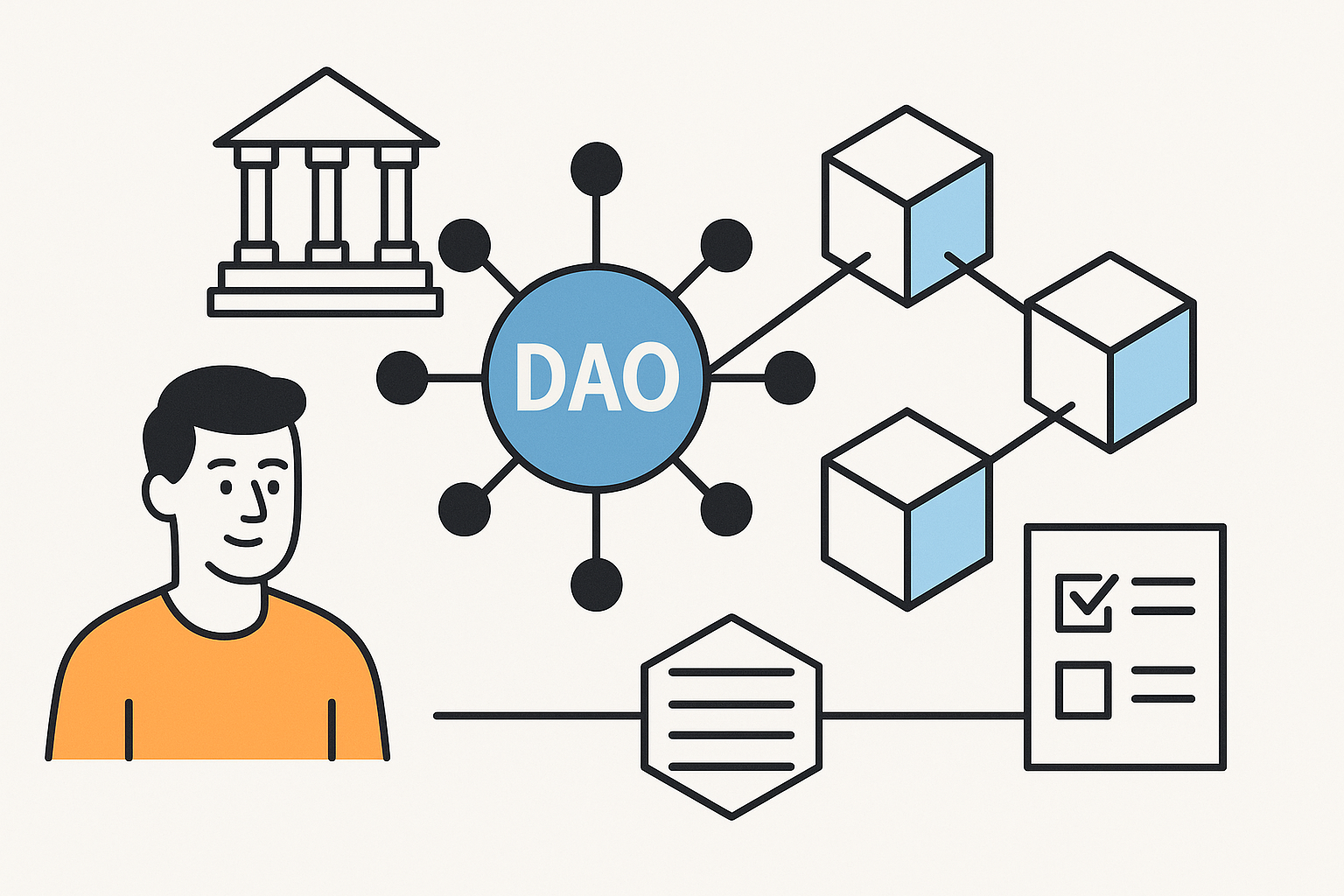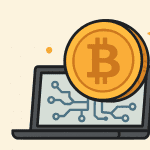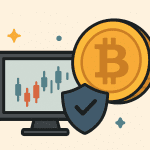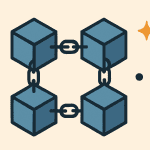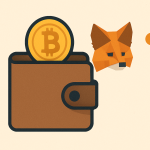If you’re exploring the world of cryptocurrency and blockchain, you may have come across the word DAO. But what does it mean?
A DAO stands for Decentralized Autonomous Organization. It may sound complex, but don’t worry — this article will explain it in a simple way that beginners can understand.
We’ll break down what a DAO is, how it works, and why it’s important in the world of Web3 and crypto.
Contents
DAO Meaning: Breaking It Down
Let’s look at what each part of the word means:
-
Decentralized: No single person or company is in control. Power is shared among members.
-
Autonomous: It runs by itself through code, not managers or bosses.
-
Organization: A group of people working together for a shared goal.
So, a DAO is a group or community that makes decisions together, using blockchain technology and smart contracts — without a central leader.
How Does a DAO Work?
A DAO is run by smart contracts — pieces of code on the blockchain that execute rules automatically.
Here’s how a typical DAO works:
-
Members join the DAO, often by buying a special crypto token.
-
These tokens give them voting power.
-
Members propose ideas (called proposals) — like how to spend funds or change rules.
-
Everyone votes on these proposals using their tokens.
-
If the proposal gets enough votes, it is automatically approved and executed.
Everything is open, transparent, and written in code. No need for a CEO, manager, or board of directors.
Example of a DAO in Action
Let’s say a group wants to support eco-friendly projects. They create a DAO called GreenDAO.
-
People buy GreenDAO tokens to become members.
-
A member proposes: “Let’s donate $10,000 to a solar energy startup.”
-
The DAO puts this proposal up for a vote.
-
If most token holders agree, the funds are sent automatically.
All of this happens on the blockchain, with no middleman or paperwork.
Why Are DAOs Important?
DAOs are a new way to build communities and manage money or ideas. They are:
-
Transparent: Everyone can see what decisions are made.
-
Trustless: You don’t need to trust a leader — you trust the code.
-
Global: Anyone in the world can join and take part.
-
Efficient: Smart contracts do the work without needing managers.
They are often used in DeFi (decentralized finance), NFT projects, and Web3 startups.
Real Examples of DAOs
Here are a few well-known DAOs:
-
Uniswap DAO: Governs the Uniswap decentralized exchange.
-
MakerDAO: Manages the DAI stablecoin and lending platform.
-
ApeCoin DAO: Community behind the Bored Ape Yacht Club NFT ecosystem.
-
Aragon: A tool for creating and managing your own DAO.
These groups manage millions (even billions) of dollars — all by voting on proposals from members.
How to Join a DAO
If you want to try being part of a DAO, here’s how to get started:
-
Find a DAO that interests you (check sites like DAOlist, Snapshot, or Discord).
-
Buy their governance token (often on exchanges like Uniswap or Binance).
-
Join their community (usually on Discord or Twitter).
-
Start voting on proposals or submit your own ideas!
Even with a small amount of tokens, you can have a voice in how the DAO works.
Risks and Challenges
DAOs are powerful, but they’re not perfect. Some risks include:
-
Smart contract bugs: If the code has errors, money can be lost.
-
Low participation: If members don’t vote, decisions can be controlled by a few.
-
Legal issues: Laws about DAOs are still unclear in many countries.
-
Security: If someone controls too many tokens, they can control the DAO.
Always do your own research before joining or investing in a DAO.
Final Thoughts
A DAO is a new kind of digital organization powered by blockchain. It lets people make decisions together, without needing leaders or banks.
If you believe in community power, openness, and decentralization, DAOs are worth exploring.
You don’t need to be a developer or expert — just start by learning, joining a community, and seeing how these amazing tools work.
